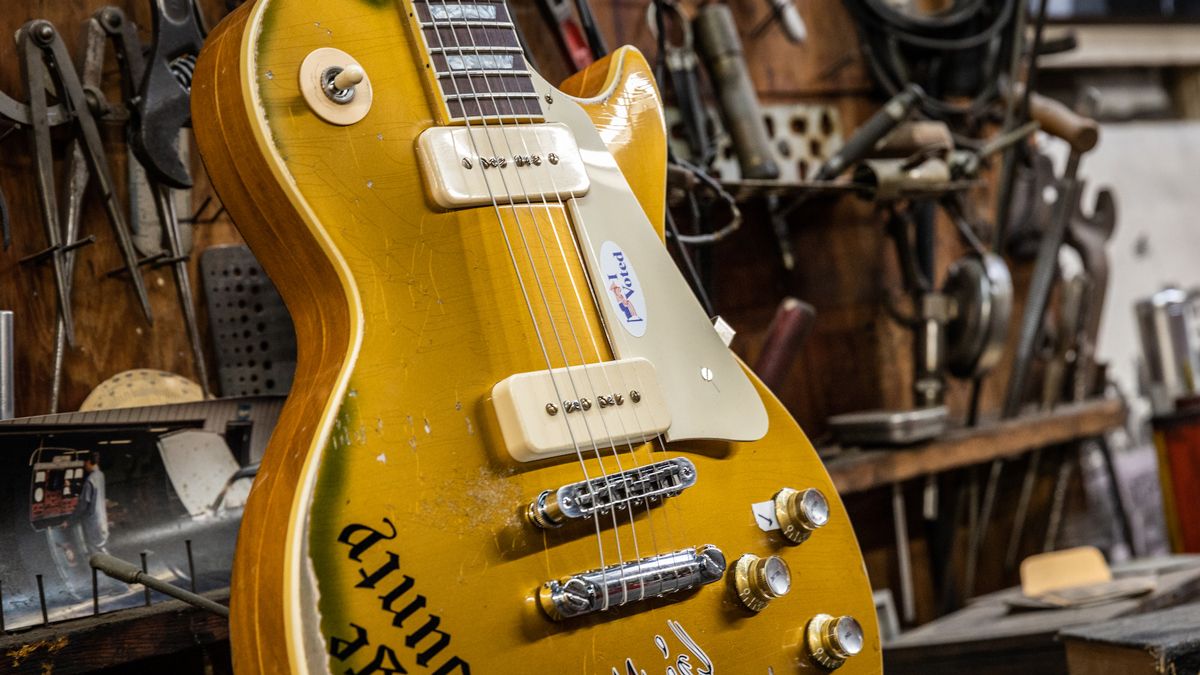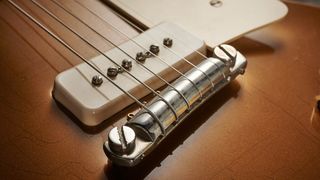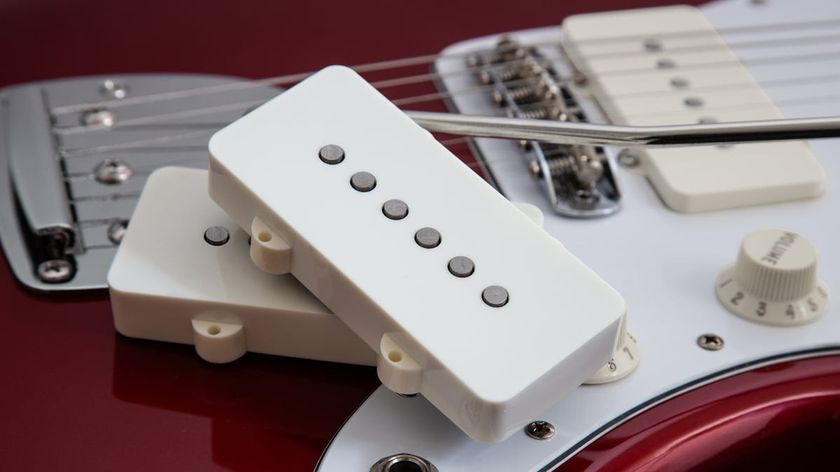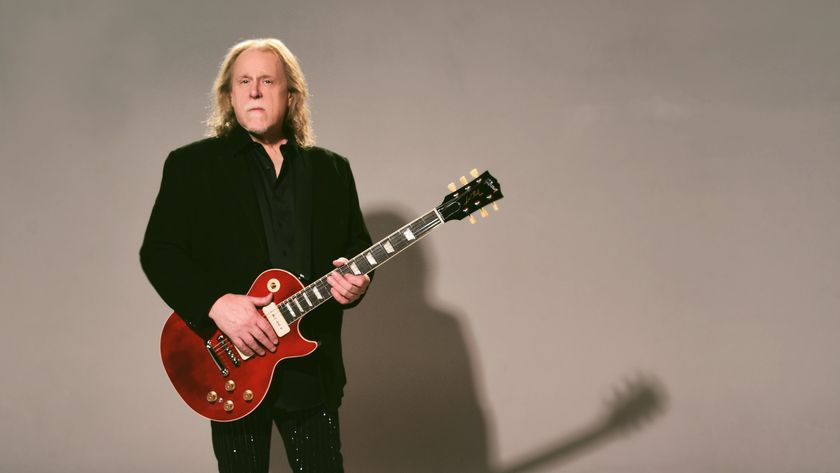
P-90s are easy to modify. Changing the magnets and the pole screws can make a big difference; it’s a lot cheaper than buying new set of pickups and you don’t even need a soldering iron. Although stronger magnets produce higher output, it’s not all about power.
Each grade of Alnico has distinct qualities that contribute to the midrange voicing of a pickup. For instance, Alnico III has a similar midrange quality to low gauss Alnico V, but its tone is sweeter, softer and less aggressive. Alnico II can sound bright and clear, while Alnico IV may have a flat and fairly neutral frequency response.
Full gauss Alnico V will provide brightness, cut and grunt, and it’s well suited to classic rock, heavy blues and punk tones. At the hottest end of the spectrum, Alnico VIII and ceramic magnets will give you the power and aggression you need for heavier rock and metal styles, but your clean tones may be compromised.
Swapping the magnets involves loosening the two baseplate screws, sliding out the magnets and sliding the new ones in. It’s easier to replace one magnet at a time, and make sure both the south poles are facing the screws. While the pickup will sound the same with the north poles facing inwards, the modified pickup may end up being out of phase with the stock pickup.
It’s important to note that P-90 magnets can slide out of alignment over time. This shift refocuses the magnetic field and it can affect the amount of midrange honk and quackiness. If you fancy a bit more vintage character, try loosening the baseplate slightly and carefully offsetting the magnets. You’ll have to experiment to find the degree of offset you like best, and don’t forget to retighten the baseplate screws.

Steel is graded by its carbon content and this is another factor that affects tone. Jon Gundry of Throbak Electronics in Michigan reports vintage pole screws varying from 1006 to 1018. Try 1010 screws for a sweeter and more vintage tone with a softer attack. To emphasise upper mids, punch and output, go for 1018, 1020 or even 1022.
This modification simply involves removing the old screws and screwing the replacements in. There’s probably no need to take the pickups out of the guitar, but we recommend using an electric screwdriver rather than a manual one to save time. Replacement screws can be purchased from Sunbear Pickups here in the UK.
Get The Pick Newsletter
All the latest guitar news, interviews, lessons, reviews, deals and more, direct to your inbox!
For a brighter and more open tone, try plastic rather than metal covers. But if your P-90s sound too aggressive and bright then metal covers might help. Changing the covers is also a good way to customise the look of your guitar.
Lastly, the fixing screws for soapbar P-90s were originally brass, but modern equivalents may be steel. Steel screws behave like two extra pole screws and can produce a bit more output and stronger mids. Brass screws may give you a more even string-to-string balance.
Huw started out in recording studios, working as a sound engineer and producer for David Bowie, Primal Scream, Ian Dury, Fad Gadget, My Bloody Valentine, Cardinal Black and many others. His book, Recording Guitar & Bass, was published in 2002 and a freelance career in journalism soon followed. He has written reviews, interviews, workshop and technical articles for Guitarist, Guitar Magazine, Guitar Player, Acoustic Magazine, Guitar Buyer and Music Tech. He has also contributed to several books, including The Tube Amp Book by Aspen Pittman. Huw builds and maintains guitars and amplifiers for clients, and specializes in vintage restoration. He provides consultancy services for equipment manufacturers and can, occasionally, be lured back into the studio.

“Classic aesthetics with cutting-edge technology”: Are Seymour Duncan's new Jazzmaster Silencers the ultimate Jazzmaster pickups?

“We’re all looking for new inspiration. Some of us have been playing humbuckers for a long, long time”: Are we witnessing a P-90 renaissance? Warren Haynes has his say










